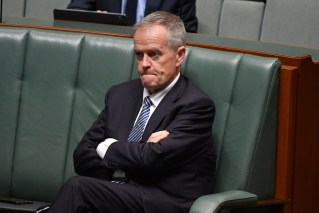Super funds defy doomsayers as Suncorp named best performer
Suncorp’s multi-manager growth fund has been named Australia’s best performing super fund with a return of 9.6 per cent for 2020, more than double the median across all surveyed funds, according to Chant West.


Suncorp has been hit with a $32m backpay bill (pic: Suncorp)
Overall, super funds delivered a positive return for the 2020 calendar year and in doing so have demonstrated remarkable resilience in the face of major market disruption, according to Chant West senior investment research manager Mano Mohankumar.
But there were losses for investors, including those who withdrew funds from the super account to deal with the pandemic. Chant West said those people had a lot of ground to make up.
Following on from Suncorp, the rest of the top 10 super funds were Australian Ethical Super-balanced (8.3 per cent), Vision Super – balanced growth (6.2 per cent), Vic Super – growth (6 per cent), Uni Super (5.9 per cent), AustralianSuper – balanced (5.5 per cent), Aware Super – growth (5.5 per cent), IOOF mixed balanced-growth (5.2 per cent), Prime Super – MySuper (5.2 per cent), Equip – balanced growth (5.1 per cent).
“The median growth fund (with 61 to 80 per cent in growth assets) ended the year up with a return of 3.7 per cent, an amazing result given the economic damage wrought by the COVID-19 pandemic,” he said.
“The 3.7 per cent return might be small compared with the bumper 14.7 per cent result for 2019, but nevertheless it represents the ninth consecutive positive calendar year and the 11th in the past 12 years.
“If we take ourselves back to late March, the prospect of finishing the year up 3.7 per cent would’ve been inconceivable. Back then the world was in chaos, facing a frightening health crisis which saw most countries introduce some form of lockdown. Whole industries ground to a halt, countless jobs were lost and the global economy was heading rapidly into recession.
“2020 highlighted the long-term nature of super and the importance of patience. Members who sat tight generally did OK.
“Sadly, there were many others who panicked when markets fell and switched their investments to cash or a more conservative option. Not only would they have crystallised their losses, but they would also have missed out on some or all of the subsequent rebound. And, of course, there were those who withdrew their money from super completely. That’s understandable to deal with temporary hardship, but they’ll now be faced with making up considerable lost ground.
“The other key message from the 2020 experience is the importance of diversification. Growth funds have their investments spread across a wide range of asset sectors, and that works to cushion the impact during periods of share market weakness, as we saw in February and March.
“The better performing funds over the full year were generally those that had a higher allocation to international shares, particularly those with a ‘growth’ style bias. Holding bonds rather than cash would also have helped, as would a relatively low exposure to listed infrastructure and listed property.”
He said that since the introduction of compulsory super in 1992, the annualised return was 8.1 per cent and the annual CPI increase is 2.4 per cent, giving a real return of 5.7 per cent – well above the 3 to 4 per cent target of growth funds.
“Even looking at the past 20 years, which now includes three major share market downturns – the ‘tech wreck’ in 2001-2003, the GFC in 2007-2009 and COVID-19 in 2020 – super funds have returned 6.7% p.a., which is still comfortably ahead of the typical return objective,” Mohankumar said.












